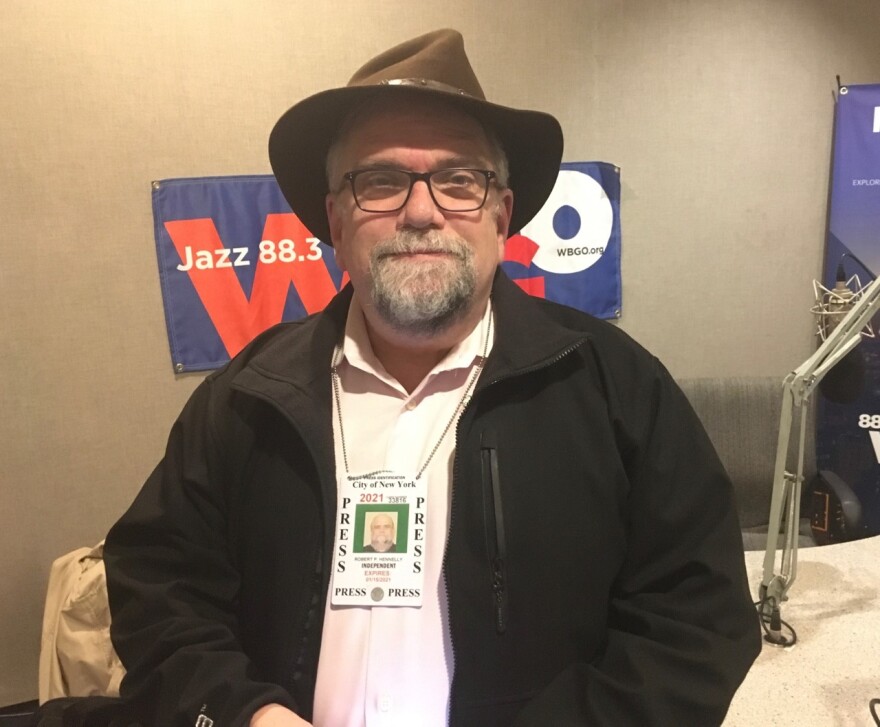A WBGO Conversation with News Director Doug Doyle and Bob Hennelly.
Doyle: Here in the United States local and state public health officials were scrambling this week in their efforts to get ahead of the coronavirus pandemic which has already killed over 1,000 people in Italy and over 4,000 in the rest of the world with close to 50 here in the U.S. After weeks of messaging from the Trump administrations that the coronavirus was like the flu, Dr. Anthony Fauci, the nation’s top epidemiologist, shared some sobering news when he testified before Congress this week.
"I mean people always say the flu does this, the flu does that. The flu has a mortality rate of 0.1 percent. This has a mortality rate of ten times that. And that’s the reason why I want to emphasize we have to stay ahead of the game in preventing this.”
Doyle: With us now is WBGO contributor Bob Hennelly who is also a staff reporter for the Chief-Leader which has been covering New York City’s civil service since 1897. Thanks for joining us Bob. Let’s talk about some of the major challenges this pandemic presents for all of the civil servants in our region and around the country. We are talking about really the front lines here right of this battle? Nurses, doctors, EMTs, police firefighters and cops for whom telecommuting is not an option.
Hennelly: That’s right Doug. We have in New Jersey some 200,000 public employees, roughly a third of them are state employees. In New York State we have some 600,000 public employees, roughly half of them are municipal employees with the City of New York. To give you a sense of the scale in New York City there are roughly 4,500 members of the FDNY EMS. These are the folks that when you call 911, they respond. So, they have the tai chi of remaining healthy yourself, making sure your family is healthy and that you have al the bases covered while you continue to fight this unprecedented epidemic.”
Doyle: And some of our first responders have pre-existing conditions, don’t they?
Hennelly: That’s right. They need to be concerned just like our senior citizens, the elderly, or our grandparents. Any of the civil servants who were involved with the response at Ground Zero (WTC) that went on for several months into the spring of the following year need to be concerned. I asked Mayor de Blasio about this and he threw it to Dr. Mitchell Katz, who is the CEO and president of the City’s Health + Hospital Corporation.
Mayor de Blasio and Katz:
"But I would go further to your occupational point. If we got folks that are compromised I think our managers need to make adjustments in how people are working if they think there are any potential vulnerabilities. I am looking to Mitch your kick on your feet. You can speak to this. If in this environment if one of your employees says I have a compromised system what should I do give us your best on how you be guided. Dr. Mitch Katz: You are absolutely right Mr. Mayor we would make job adjustments and I think that’s what is appropriate. You have to tailor it to the person’s circumstance."
Hennelly: So, that’s a really important guarantee that the Mayor put out there that we have supported by Dr. Katz. With H+HC we are talking about a system with 40,000 employees and 300,000 who work for the New York City. This is something where if you were a first responder or were involved with 9/11 and you work for any state, regional or Federal organization it is important for you to make sure you check with your supervisor or to check in with your union, since most of these folks are represented . It is very important that while you served so gallantly you shouldn’t put your life on the line again unnecessarily and in the process hamper the response. It is really important for disclosure here and even for managers in these agencies to support people coming forward and being transparent about any potential health vulnerabilities they might have.
Doyle: So, can we say at this point there is even a bigger challenge ahead for public workers?

Hennelly: I would say we are in some unprecedented territory here because all the system we have designed are showing to be wholly inadequate. So, something just as simple as the fact that for many years the concept of universal health care was considered to be a talking point, now is looking like a national security imperative. The big challenge for public health officials is being able to have reconnaissance on the totality of the population and with so many workers in marginal circumstances, they either don’t have health insurance or don’t have paid sick leave, or they are in the cash economy. Those are the people that will soldier on just to feed their families. So, I think what we are going to see is a growing call for universal health care because in the long run the circumstances of every neighbor is part of the overall public health.
Doyle: Bob, thanks for keeping us up to date and stay healthy. Thanks.



